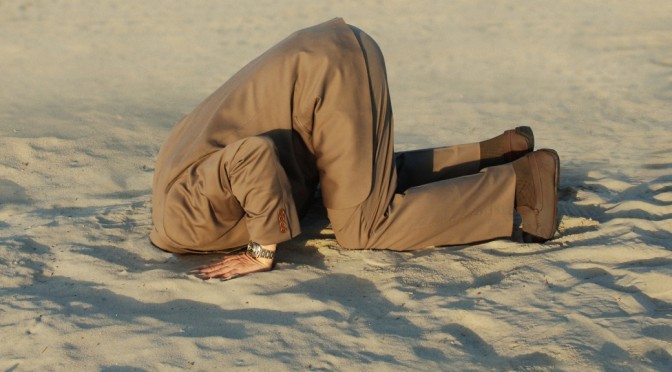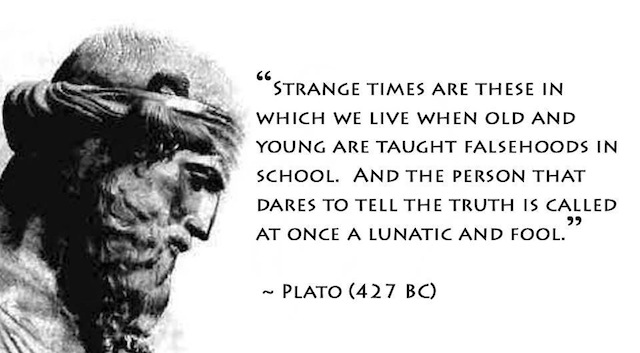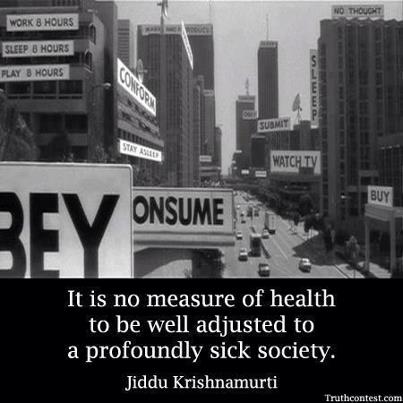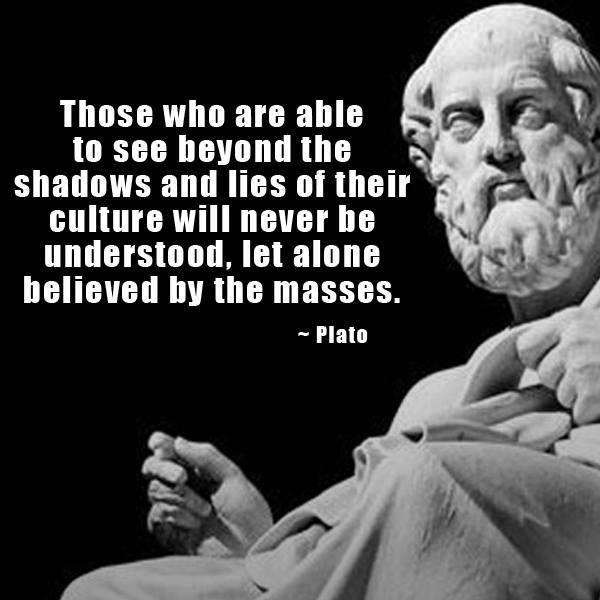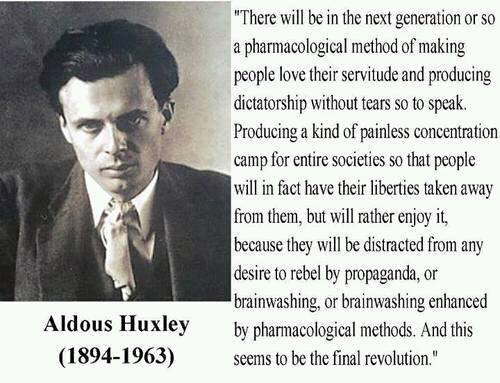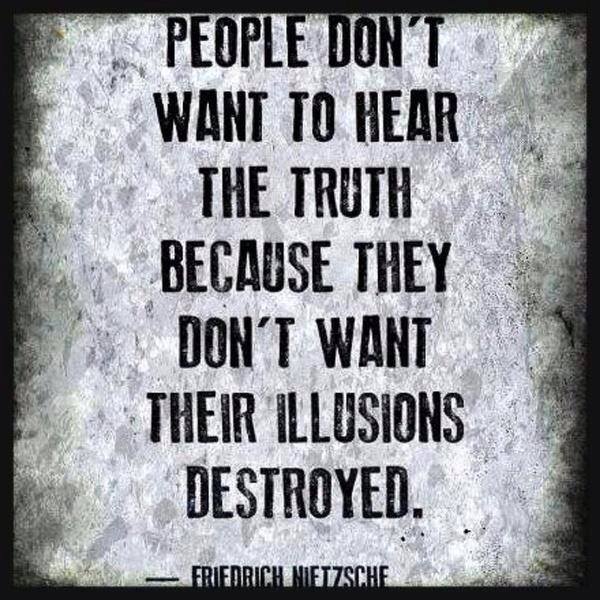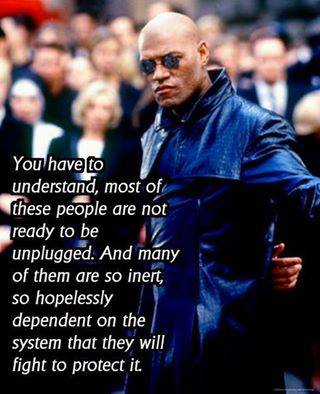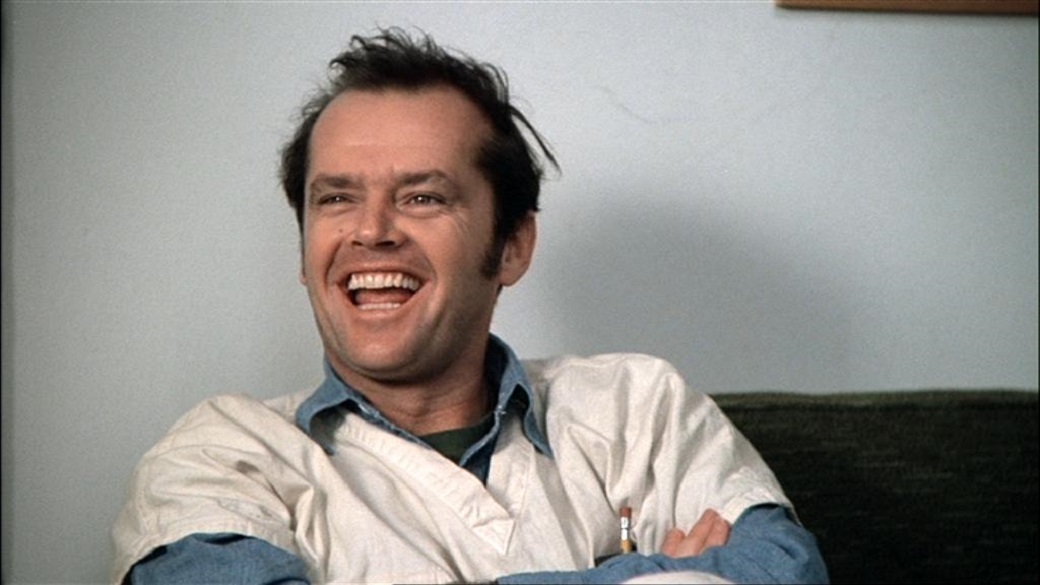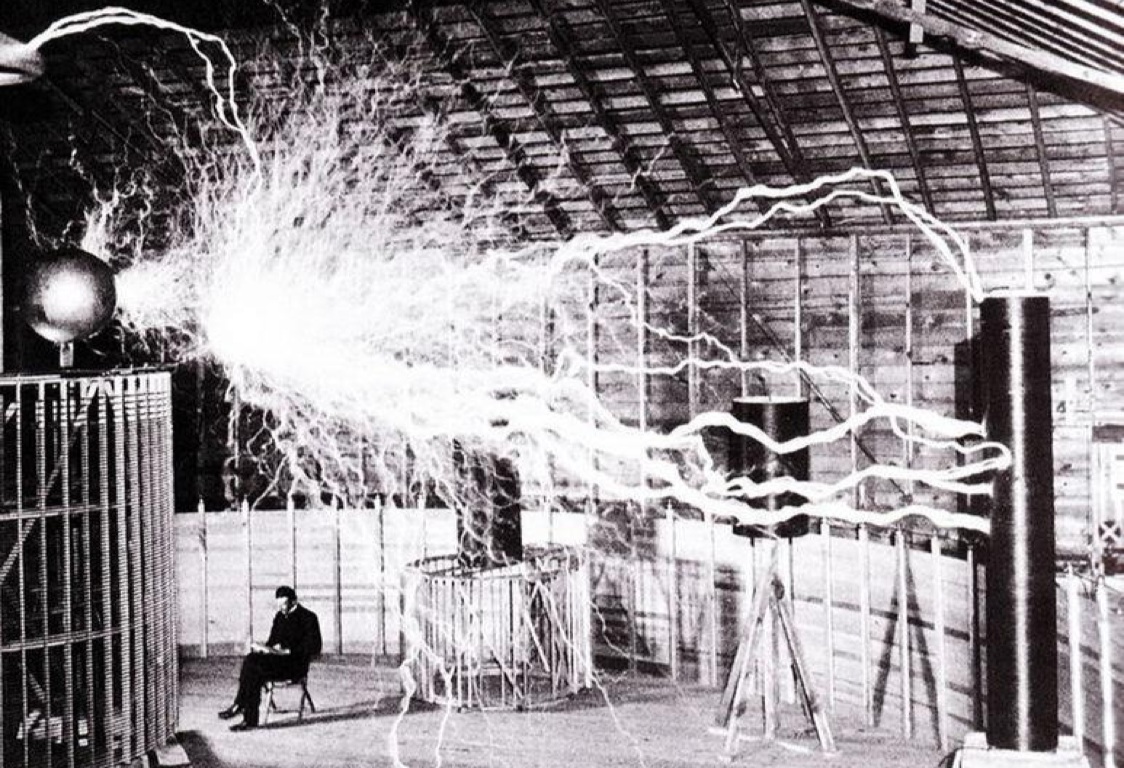Head in the Sand, Ass in the Sky
By
There are far too many people that refuse to question or investigate the world around them with a clear, logical and rational mind. They don’t want to know. Most of them are gripped by fear of knowing the truth. They would prefer to listen to what their authorities tell them, no matter how absurd it is, rather than question or expose the deceptions that are presented to them as facts. Wouldn’t you want to know if someone is lying to you?
Take, for example, the collapse of the World Trade Center, on Sept. 11, 2001. To this day, many people refuse to look at the piles of evidence pointing to the truth. They believe whatever the mass media and the government tell them. Such people are seriously programmed to believe whatever the authorities tell them without question. Many have been sufficiently programmed to become angry whenever the subject is brought up, and ridicule those that try to expose the deception. People have become so deeply programmed, that they can’t even acknowledge the chemtrails that hover above their heads daily. That is serious denial. Don’t you think that something is seriously wrong with this picture?
You would think that if the government, the politicians, the banks and the corporations are not only corrupt, but are also robbing the people blind and poisoning them with chemically tainted food, fluoride and vaccines; well, wouldn’t you want to know about it? Don’t you want to know why or what they are spraying over our heads? What kind of person would rather pretend that it’s not happening? This is major denial. It is completely devoid of any rationality. What they are ignoring has the power to crush them, yet somehow they believe that if they just pretend that everything is fine, then there’s nothing to worry about.
If there were ferocious animals in the forest that you were going to walk into, wouldn’t you want to know about it? This is exactly like the ostrich that sticks his head in the sand to evade danger. Remember, if your head is in the sand, your ass is sticking up. If a tiger is attacking you, do you believe that if you just close eyes and think of unicorns, that the tiger will disappear? Because this is exactly the mindset of a person that refuses to question or investigate the world around him. This is the mindset of a person that believes his authorities without question and conforms to the many programs that control him. Think about that.
If you don’t know what is really happening in the world around you, how can you navigate through life properly? You don’t even know which direction to take or where you are going. You will steer from one storm to another, never reaching safe harbor.
This is the plight of humanity. They have been sufficiently programmed to believe whatever they are told, no matter how absurd it is, to obey the authorities, be politically correct, follow the script and conform. They have been sufficiently programmed to have tremendous fear of the truth. Neither do they have the psychological tools to deal with the truth. Such people become easily angered at anyone that speaks the truth, and ridicule and attack him. This is a very serious plight that humankind seems to be lost in. They have reached a point where they are completely incapable of coping with the truth.
Now that alone is a scary situation. Think about it. You are living in a world where the majority of people have been deeply programmed to believe the most absurd, illogical things without question, causing all kinds of havoc. They have allowed themselves to be hypnotized to believe just about anything. This is the world you are living in. Even if you try to explain the most obvious defects in their script, they cannot grasp what you are even saying. They think you must be crazy.
In Star Trek, The Next Generation, there was a species of half biological, half machines called the Borg. They are a collective of a hive mentality, and they travel around the galaxy looking for species to conquer, so they can assimilate them into their collective. That pretty much portrays the world today, with so many people that have been assimilated into the collective, to become an automaton.
There really isn’t a whole lot you can do about it, except to try to wake people up. But that is becoming a dangerous activity these days. No, this is the world we find ourselves in. A stranger in a strange land.
Somehow humankind has chosen a very irrational life:
“Man has found it more satisfactory, and believe me, this is irrational, but nevertheless, he has made this irrational decision – As irrational as it is, he has made the decision, to submit to external forms of tyranny, external forms of control, which are partly punitive, but also partly permissive; I mean the slave is going to have food, and he’s going to have some shelter, he’ll be told what to do, he’ll have the camaraderie of other slaves and so on. So the slave mentality, the man that submits, has in fact, chosen to submit to external authorities, regardless of how tyrannical they are, rather than face the journey on the Siddhartha Road towards an understanding and attainment of his own Selfhood.”
– Michael Tsarion
“Here is a man that has committed, within his subconscious, to not live an authentic life. Then he wants to cluster around people that have made this similar decision. And that’s what we have in societies, is an inauthentic collective. But it’s based on people that would rather submit to the external tyrannies of Big Daddy, who would rather cling to the handrails, who would rather lean on one another, than to face the anxiety that arises, when you have to go on the inner journey of Truth, where you have to discover what you’re really here for on this planet, and who you are yourself.”
– Michael Tsarion
“As soon as I hear that someone is thinking that another authority, another person, has the rights over their mental and emotional and attitudinal and psychic life, I’m worried about that person. Because I know that that person has some very serious psychological and existential problems, right off the bat. Then that person is going to be a part of a herd, or will be a controller of a herd, or be manipulated by the herd, or whatever you want to call it. But you will never find that person doing any good in the world. Not any real necessary good at all. It’s a contradiction of terms. They may be sold the illusion, or delusion that they are doing wonderful work, because they gave to Live Aid or the next stupid charity that pops up out of the woodwork. [They are] the people’s champions that lead you away.”
-Michael Tsarion
So why is it that mankind would make such an irrational decision to submit to external authorities? It’s the path that they know, the path that was programmed into them since birth. Most people are incapable of deviating too far from the status quo. They fear the unknown, that which deviates from the accepted norm. Also because it’s the easy path, the path of least resistance. Consciousness is like water, which always chooses the path of least resistance, which is a downward path. It takes effort to raise one’s consciousness, just like it takes effort to move water upwards. The world is laid out for the child, with all of his authorities telling him what is real, and what is expected of him. It is not easy for a child to rebel, as he is scolded into submission. The child is always facing punishment for not accepting the status quo. Once the state schools, the media and religions get hold of the child, he is forced to conform even more, with the fear of being drugged into submission if he chooses to rebel against the system. By the time the child becomes an adult, he is completely programmed by the state, the society, the media and the religions. Is it any wonder that everyone is lost and so fearful to know the Truth?
They refuse to even entertain the truth, because it stirs up a lot inside, and they are unable to cope with it. They were never given the tools of rational, critical thinking or logic. They were only taught to memorize what they were told and to conform and follow authorities. All of the various programs create a person’s false beliefs. He then uses these false beliefs as his support and stability in life. His entire life story and perception of the world hinges upon these false beliefs. If they are shaken, it causes disturbances to the individual, which he is incapable of dealing with. Therefore he remains caught in the grip of the matrix, and is extremely fearful of the truth. He will fight and kill to protect the prison which he is bound in chains.
This is the predicament that we find ourselves in. Each of us must choose which direction on the path of life he wants to take. Most people follow the herd, to remain trapped in the matrix, but the person who wants to know the Truth is traveling in the opposite direction. This is his choice, no matter how difficult it is, that an authentic person takes. Why? Because he is tired of living a lie. He is intelligent enough to see that there are many things wrong with the world, and has decided not to become a member of such insanity. It is a difficult path, but for one who has focused his attention on traversing such a difficult path, there can be no other way. Such an intelligent, sincere and authentic person will not submit to tyranny in any form. For him, it is much more difficult to walk the path of the herd, to submit to authorities and to live a life of lies and deceptions.
